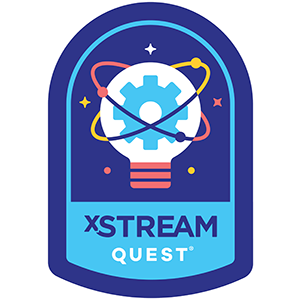
At Children’s Lighthouse, we believe in fostering a consistent, loving environment for children where the culture and diverse backgrounds of all our families are respected and recognized. In January, our Character Value word of the month is Diversity. Throughout our schools and classrooms, we celebrate this by offering children the opportunity to learn about a variety of cultures, demographic locations, and family backgrounds around the world. It is important we build a level of competency in cultural awareness early on to support a child’s lifelong learning.
Research shows that a child’s growth and learning can be positively impacted by promoting diversity in daily interactions, observations of other’s culturally sensitive and competent behaviors, and exposure to multiculturalism through play-based activities or materials (Miller, 2019). According to the National Association for the Education of Young Children, it is essential that teachers also recognize their own culture to better understand children according to how their cultures or families may influence their behaviors (2020). When teachers combine their own cultural experiences and perspectives, and those of their children and families, an inclusive environment is developed. This leads to intentional, supportive, empathetic, and relational approaches to teaching and learning.
Here are a few ways that Children’s Lighthouse Early Learning Schools foster and reasons why doing so matters for your child.
How Does Children’s Lighthouse Foster Diversity in Education and Curriculum?
Inclusive Curriculum Design: We have a proprietary curriculum that reflects diverse perspectives and ensures that all children can see themselves represented in their own learning. This includes integrating literature, family photos and picture collages displayed for visual learning and interactions, music, multicultural and real-life items, and child-led art projects that highlight individuality and diverse representations of many cultures, demographic backgrounds, and physical aptitudes. We also incorporate Spanish and Sign Language into our curriculum units for Infants, Toddlers, and Preschoolers to help build language and communication skills for all children’s needs and understanding.
Teacher Training: Educators are trained to incorporate multicultural and real-life enrichments into their classrooms. They are also provided with training in inclusive teaching practices for the purpose of creating a more welcoming and effective learning environment. Our Childrens Lighthouse Franchise Company’s (CLFC) curriculum and operational support teams also attends nationwide conferences that offer topics on diversity to ensure they are up to date on research-informed practices.
Community Engagement: It’s essential for CLFC to build relationships with diverse communities. Our schools engage with parents, local organizations, and cultural groups to create a more inclusive and culturally responsive environment. They are also encouraged to have in-school visitors from different cultures and diverse backgrounds. Our schools also support parents of diverse backgrounds through communication methods to embrace their native spoken language.
Why Diversity Matters in Education
Enhances Critical Thinking: Exposure to diverse perspectives challenges children to think critically and question their assumptions. It encourages an environment where ideas are constantly examined and refined, leading to more informed viewpoints.
Promotes Empathy and Understanding: Education in diverse learning environments helps individuals build empathy for others. By hearing stories and learning about different lived experiences, children are more likely to develop compassion and an understanding of struggles they may not have personally faced.
Better Preparation for the Real World: As the world becomes increasingly globalized, understanding and respecting cultural differences is critical in professional and social settings. Education systems that embrace diversity ensure that children are prepared to navigate diverse environments, whether they are interacting with colleagues from various backgrounds or traveling abroad.
Increases Academic Achievement: Research shows that children who learn in diverse environments often perform better academically. The exposure to a variety of viewpoints and learning styles creates a stimulating environment that encourages academic growth.
Fosters Innovation: Diversity in education fosters creativity. When individuals with different experiences and ideas come together, it opens the door for innovative solutions and out-of-the-box thinking. This is especially important in fields like technology, healthcare, and the arts, where new perspectives can lead to groundbreaking advancements.
Happy New Year 2025
This January, create a goal to accomplish new things, make new family memories, and celebrate diversity within your own family. Teach your child about your family background and heritage, celebrate family traditions, or share a favorite family recipe that has been passed down through the generations. In doing so, you will create a space in your home that fosters compassion and helps to contribute to making the world a better place.
For more on how Children’s Lighthouse Franchise Company supports diverse, intentional learning and growth, visit, www.childrenslighthouse.com



